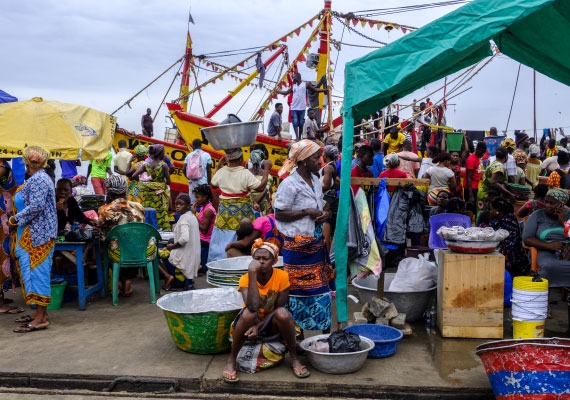By: Rose
Abortion Laws In Ghana
Ghana is known to be one of the African countries with a liberal law around abortion. In fact, abortion is legal under the following circumstances:
- Impregnated rape victim
- Impregnated ‘female idiot’/” mad female”
- Pregnancy as a result of incest
- Foetal abnormality
- If the pregnancy will be detrimental to the health or life of the mother
(To learn more about abortion in Ghana, including laws, resources, and support networks, you can visit our Ghana country profile.)
Even though this law has been in existence for more than 30 years, many Ghanaian women do not have information on the legalities, and as such are more predisposed to seek other alternatives when faced with the decision to abort a pregnancy. This is primarily due to the highly religious nature of citizens, because according to theologians, abortion is considered “a sin” in both Christianity and Islam, which are the two main religions in Ghana.
Abortion Myths In Ghana
There is also a huge misconception that abortion causes infertility, and other deformities in children. In some communities, there is a belief that infertility among married women is a result of multiple abortions when she was single. If a woman in Ghana is found to be infertile, she will live a very isolated life – shunned from her marriage, family and community. It’s bad enough that women have little to no negotiating power in a relationship, much less autonomy over her own reproductive health and bodily autonomy. Stories like these sadly reflect the reality of Ghanaian society: highly superstitious and quick to dismiss the real issues because it makes them uncomfortable or challenges the beliefs they’ve held on to for decades.
The media in Ghana is also gender biased in its coverage. Issues affecting women don’t receive significant coverage, and thus the people remain unaware and ignorant of the various social challenges affecting women in the country.
Additionally, current abortion statistics in Ghana do not provide a full picture and only capture those women that are bold enough to speak out about their abortion experiences. For example, the 2017 Ghana Maternal Health Survey states that only 1/5 Ghanaian women, aged 15-49, have had an abortion, with rates falling among poor and uneducated women. The survey also states that there are some communities in Ghana where women do not even know what an abortion is.
Moving Past The Challenges
The challenges are indeed complex, and addressing them requires an intersectional approach which aims to tackle oppressive norms, and remove barriers such as poverty and lack of education. It is also important for the government to increase spending on sexual and reproductive health rights, promote capacity building for health workers who provide safe abortion services for the women who need it and empower more Non-Governmental Organizations (NGOs) to scale up awareness and advocacy within communities.
The feminist movement in Ghana has been steadily growing. In 2018, during the 16 Days of Activism against Gender-Based Violence, many Ghanaian women spoke out about their experiences using the hashtag #hearmetoo. Also, several organizations in Ghana are helping to reduce maternal mortality rates from unsafe abortions, namely, Ghana Health Service, Marie Stopes Ghana, Planned Parenthood Association of Ghana and other SRHR groups.
If you are looking to learn more about safe medical abortion, you can visit our website. You can also follow us on social media: we’re on Facebook, Twitter, Instagram and Pinterest .
Rose is a Consultant for Women First Digital and an SRHR advocate.
